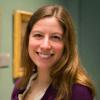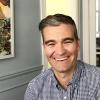Collections and Collecting
Bringing together curators, archivists, library professionals, and scholars representing fields across the sciences and the humanities, this working group takes an interdisciplinary approach to considering the history of collections, as well as associated debates surrounding the value and purpose of collecting. This group will grapple with the past and present role of collections, and consider questions such as the following: What kinds of objects, specimens, and artifacts are considered worth collecting and by whom? How can institutions continue to maintain and care for their collections? What kinds of information and/or data are stored within collections? How can new approaches to research, teaching, and public programs allow for objects to reach new audiences and/or provide new opportunities for reinterpretation?
Please set your timezone at https://www.chstm.org/user
Consortium Respectful Behavior Policy
Participants at Consortium activities will treat each other with respect and consideration to create a collegial, inclusive, and professional environment that is free from any form of discrimination, harassment, or retaliation.
Participants will avoid any inappropriate actions or statements based on individual characteristics such as age, race, religion, ethnicity, sexual orientation, gender identity, gender expression, marital status, nationality, political affiliation, ability status, educational background, or any other characteristic protected by law. Disruptive or harassing behavior of any kind will not be tolerated. Harassment includes but is not limited to inappropriate or intimidating behavior and language, unwelcome jokes or comments, unwanted touching or attention, offensive images, photography without permission, and stalking.
Participants may send reports or concerns about violations of this policy to conduct@chstm.org.
Upcoming Meetings
-
Friday, September 6, 2024 12:00 pm to 1:30 pm EDT
TBA
-
Friday, October 4, 2024 12:00 pm to 1:30 pm EDT
TBA
-
Friday, November 1, 2024 12:00 pm to 1:30 pm EDT
TBA
-
Friday, December 6, 2024 12:00 pm to 1:30 pm EST
TBA
-
Friday, January 3, 2025 12:00 pm to 1:30 pm EST
TBA
-
Friday, February 7, 2025 12:00 pm to 1:30 pm EST
TBA
-
Friday, March 7, 2025 12:00 pm to 1:30 pm EST
TBA
-
Friday, April 4, 2025 12:00 pm to 1:30 pm EDT
TBA
-
Friday, May 2, 2025 12:00 pm to 1:30 pm EDT
TBA
-
Friday, June 6, 2025 12:00 pm to 1:30 pm EDT
TBA
Past Meetings
-
May 3, 2024
Hannah Swan, Lucas Richert (UW-Madison, School of Pharmacy), "Pharmacy History in the
Twenty-First Century: Modernizing the Edward Kremers Research Library and Archive”
This presentation will summarize the activities and findings of a 3-year National
Endowment for the Humanities (NEH)-funded project, “Accessing the History of Health,
Pharmacy, and Medicines,” which focuses on the archival collections of the Edward Kremers
Research Library and Archive, held jointly by the American Institute of the History of Pharmacy
(AIHP) and the University of Wisconsin-Madison School of Pharmacy. The collection was begun
in the 1890s by Edward Kremers, who served as the second director of the University of
Wisconsin-Madison School of Pharmacy and pioneered the four-year curriculum for pharmacy
schools, and continued to grow throughout the twentieth century under the auspices of the
AIHP. The archive documents pharmacy and pharmaceutical history through photographs,
advertisements, trade catalogs, correspondence, and more. The current grant project centers
on increasing the accessibility of the collections through the processing of five hundred file
drawers of print and archival materials, the digitization of historical pharmacy artifacts and
ephemera and accompanying implementation of a digital library, and the creation of online
exhibitions featuring materials from the collection. This talk will feature highlights from the
collections that are being processed, illustrated richly with images of pharmacy history from the
mid-nineteenth century forward, while also touching on the complexities of reclassifying and
digitizing an ephemera-based collection. We will conclude with a look ahead at the third and
final year of the grant work and what the future holds for these collections.
-
April 5, 2024
Judy Kaplan (Science History Institute), "The Berlin Turfan Collection, Disciplinarity, and Scholarly Biography"
Between 1879 and 1935 a series of foreign expeditions to the Turfan depression in Xinjiang extracted an extraordinary volume of antiquities. This ancient Silk Road oasis attracted Swedish, Russian, Finnish, German, Japanese, British, and French explorers. That said, the four German expeditions (1902-1914) were, by all accounts, the most comprehensive. Facilitated from the start by Russian scholarly encouragement and material support, these led to the collection of some 40,000 text fragments, representing more than 20 different languages and writing systems, several of which had previously been unknown to Europeans. These works provided a new empirical foundation for research in Indo-European philology and comparative-historical linguistics after 1904. Stored in German salt mines during WWII, divided among institutions East and West thereafter, these materials are now being reintegrated and reanalyzed through a number of collaborative digitization projects. My goal in this informal talk will be to explore how the Berlin Turfan Collection relates to questions of disciplinary history and individual biography.
-
March 1, 2024
Joshua Bell (National Museum of Natural History, Smithsonian), "Big Histories through insistent things: Exhibiting the Global Stories of the Cellphone at the National Museum of Natural History"
What is the role of technology in our society? How has the cellphone transformed our world? What is the role of anthropology in a natural history museum in the 21st century? Thinking through the issues bundled up in these questions, within this talk I will discuss a new exhibit Cellphone: Unseen Connections that I curated at the Smithsonian’s National Museum of Natural History (NMNH). Cellphone examines cellular technology and its cultural, ecological and social intersections around the world, and is informed by a decade of interdisciplinary and collaborative research on cellular telephony in Washington D.C.. The exhibit seeks to demonstrate how technology is an essential aspect of our humanity, and that natural history is about, and for, everyone.
-
February 2, 2024
Bashira Chowdhury and Jim Giesen (Mississippi State University), "Sweating the Small Stuff: How Histories from Boll Weevil Logbooks and Collections Define Today’s Insects"
In 1969, the USDA launched a national campaign to eradicate the boll weevil, a major scourge of cotton farms across the Southeast US. The campaign started with a pilot experiment in Southern Mississippi to demonstrate that thetechnology to eradicate boll weevils already existed and required state and federal authorities to coordinate on when and where to spray insecticides. In 1973, Congress passed a Farm Bill mandating boll weevil eradication, ensuring cotton farms across the United States had to comply with federal efforts, and by 1978, the USDA started its multi-decade march to push boll weevils from Virginia and North Carolina to the US-Mexico border.
The USDA, and most cotton growers, consider the campaign a success. As of 2000, boll weevils were hard to find in the Cotton South. However, the program’s effect on the insect ecosystems of the region is unknown. As a part of its legacy, the campaign left behind volumes of archival material, scientific data, and insect specimens that may help us better understand how beneficial insects weathered these federally coordinated onslaughts of insecticides. We use these data and specimens to piece together histories about Geocoris and Nabis, omnivorous predators of a variety of crop pests. Experts today view both species as critical components of modern pest management. By documenting their histories, we shed light on two interwoven stories: how decisions by farmers, scientists, and policy makers shaped insectdiversity during the campaign, and how the legacy of these decisions shape ambitions to define and employ beneficial insects today. Together, this allows a new understanding of how efforts to advance a post-insecticide world may be delivered through beneficial services from insects.
-
December 1, 2023
Diana Marsh and Katrina Fenlon (University of Maryland), "Linking Analog Archival Data Across Scientific Disciplines: What’s Next?"
Currently, data embedded in primary archival sources are largely disconnected from networked systems of discovery and access that support research and reuse. This interactive session will invite a dialog between two strands of research focused on how we can most effectively make primary sources reusable as data, to support scientific research across disciplines. The first project, “Recovering and Reusing Archival Data for Science” (Funded in part by USDA, PI Katrina Fenlon) investigates data recovery and reuse efforts focused on historical data, including data drawn from archives, legacy research materials, and other primary sources. The goal of this project is to advance our understanding of retrospective data curation—both across disciplines, and across the boundaries of practice between professional data curators and scientific researchers. The second, “Building a sustainable future for anthropology's archives: Researching primary source data lifecycles, infrastructures, and reuse ” (NSF, PI Diana Marsh) builds on Fenlon’s work by taking a deeper dive into a single discipline. It asks how anthropology’s analog primary sources—including fieldnotes, photographs, analog audiovisual materials—can become findable, reusable data sources. The project aims to: identify current movements and future best practices for anthropology’s archival information infrastructure, evaluate test collections in emergent cross-disciplinary open access platforms, develop training modules for anthropologists and archivists/data curators.We will present two short presentations interspersed with discussion questions for the group, centered around: 1) how historical archives are being used by scientists, and 2) exciting advances in archival infrastructure or practice for data reuse.
-
November 3, 2023
John Sime (University of Pennsylvania), "The Illustration of Nature Recast: Jacob Green's Models of North American Trilobites"
A Monograph of the Trilobites of North America (1832) is a singular experiment in the history of scientific publishing. Each copy included a set of painted plaster-of-Paris casts of fossils to illustrate the descriptions of new trilobite species. Its author Jacob Green (1790—1841), a naturalist and professor of chemistry collaborated with Joseph Brano the artist who produced the casts. Trilobites of North America was one of the earliest classifications of trilobites, enigmatic fossils at the time that were hoped to be found extant. Today, trilobites are well-known icons of extinction. Many of Green’s trilobite genera and species remain in use and scaffolded future work. Trilobites of North America is also among the earliest examples of the use of plaster in paleontology. Green and Brano experimented with depictions of nature in three dimensions to escape the limitations of drawings on the page. Much scholarship has focused on Henry Augustus Ward’s catalogs of fossil replicas. But, unlike Ward’s, Green and Brano’s work was a reported new scientific discoveries. While the novelty of both the subject matter and method of illustration was recognized by American naturalists, today Trilobites of North America is known to few paleontologists or science historians. In this paper, I develop a historical account of how that came to be.The first part of the paper is descriptive. I document the casts from Green and Brano’s collaboration that are now in collection at The Academy of Natural Sciences of Drexel University. I then reconstruct how Green and Brano assembled their monograph: selecting fossils in collections and making casts of them. I also report on the condition of the original fossils when they could be located, but most are now lost or destroyed. This section reveals that Trilobites of North America was the beginning of a nearly decade long collaboration with more expansive aspirations than first realized.
Next, I develop a picture of the epistemic and aesthetic values and practices that led Green and Brano to produce the Trilobites of North America. Green wrote about the epistemic reason for using casts instead of drawings: to produce more accurate illustrations. Aesthetic values also motivated the use of casts, as stated in Brano’s advertisements. I investigate how the casts reflect these values, comparing them to the fossils and paper illustrations. In addition, I examine what role the casts had in paleontological debates at the time, to see if they were used as intended.
Finally, I explore how the design of Trilobites of North America (text and plaster) gave it different affordances than other kinds of scientific publications (broadly construed) available to Philadelphia naturalists. I argue that this unique combination of affordances along with the increasing specialization of scientific practices led to the sorting of Trilobites of North America into its material components, where the connection between book and casts is often lost. Today, the text sits on the library shelf while the plaster trilobites sit in collection drawers.
-
September 22, 2023
Anna Majeski (American Philosophical Society), "American Natural History, 1750-1850: Depicting Nature in a Time of Change"
This talk presents the American Philosophical Society Library & Museum's upcoming spring 2024 exhibit on American natural history. Focusing on the work of William Bartram (d. 1823), Titian Ramsay Peale (d. 1885), and John James Audubon (d. 1851)--all strengths of the APS collections-- it traces how American naturalists engaged with the natural world in new ways, and in a time of enormous social and environmental change. Bartram, Peale, and Audubon are all key figures in introducing new ways of describing the natural world in both words and images, focusing on living nature in its environmental and ecological context, as opposed to the decontextualized approach of European taxonomists. At the same time, the natural world that they depicted was on the cusp of major environmental change, with contemporaries recording diminishing animal populations and dwindling forests. This show brings these two threads together, and asks how natural science is in dialogue with shifting ethical or social attitudes towards the nonhuman world. Moreover, it underlines both Indigenous and African Americans as both forerunners and major contributors in articulating the the new image of nature.
-
May 5, 2023
Pedro Raposo (Martha Hamilton and I. Wistar Morris III Executive Director, Library and Archives, The Academy of Natural Sciences of Drexel University) and Paul Callomon (Collections Manager, Malacology, The Academy of Natural Sciences of Drexel University), "People, Nature, and the Social Extension of Specimens"
-
April 7, 2023
Marta Lourenço (Museum of Science and Natural History of the University of Lisbon), "Engaging Storytelling: Reading Artefacts of Science"
The material culture of science – artefacts, collections, spaces, specimens – has been increasingly used as primary sources for the history of science, technology and medicine. However, due to tradition, past practices, object perceptions, and contingencies related to collecting, among others, scientific museums are often poorly prepared to document collections and respond to the demands of the "material turn" in history. In this workshop, I will explain why this is so important for contemporary museums – storytelling, diverse narratives about the past, "decolonization," etc. – and propose a simple and practical tool for documenting artefacts (the "Gessner Map"). Participants will be asked to engage with artefacts (despite the workshop being online).
Marta C. Lourenço is the present director of the Museum of Science and Natural History of the University of Lisbon (MUHNAC). She has background training in Physics (University of Lisbon), a MA in Museology (Nova, Lisbon) and a PhD in Museology and History of Technology (CNAM, Paris). She is the national coordinator of PRISC (Portuguese Research Infrastructure of Scientific Collections). She teaches Material Culture of Science in the Masters of History and Philosophy of Science (Faculty of Sciences, University of Lisbon) and is a research member of CIUHCT, the Interuniversity Research Centre for the History of Science and Technology (University of Lisbon).
-
March 3, 2023
Ally Fulton (University of California-Davis), “Stenographic Specimens in the Preservation of American Science”
Group Conveners
-

Reed Gochberg
Dr. Gochberg is Associate Curator and Manager of Exhibitions at the Concord Museum, and she teaches in the Museum Studies program at Harvard Extension School. She holds a PhD in English from Boston University and is the author of Useful Objects: Museums, Science, and Literature in Nineteenth-Century America (Oxford University Press, 2021).
-

Adrianna Link
Dr. Link is Head of Scholarly Programs at the American Philosophical Society. She received her PhD in History of Science from The Johns Hopkins University.
-

Jesse Smith
Jesse Smith is director of curatorial affairs at the Science History Institute, where he oversees exhibitions and other interpretive projects in the history of science. He is also associate editor of the journal History and Technology. Jesse earned his PhD in the history and sociology of science at the University of Pennsylvania.